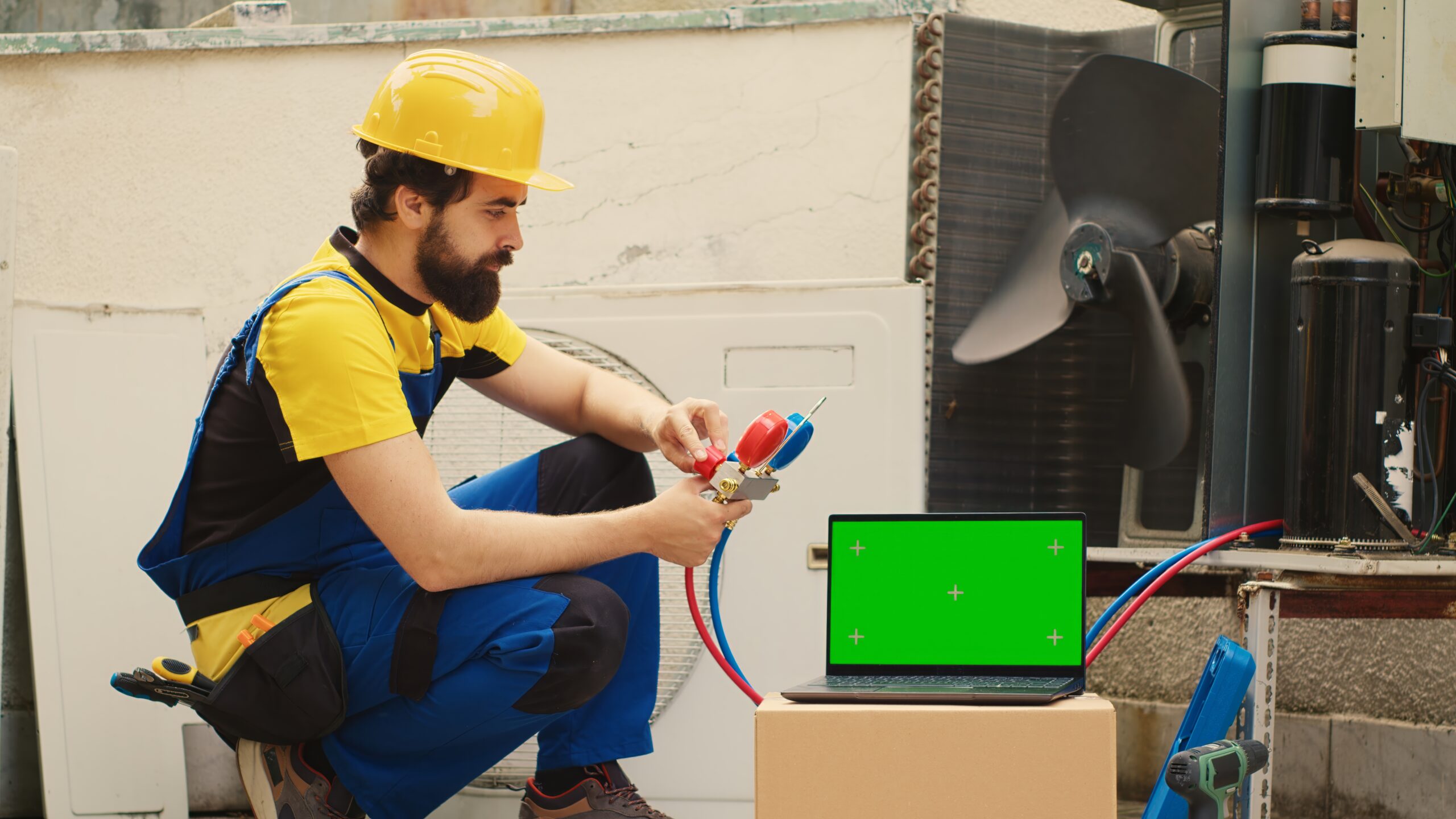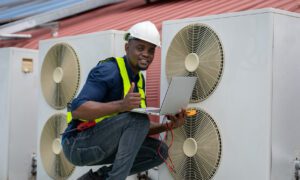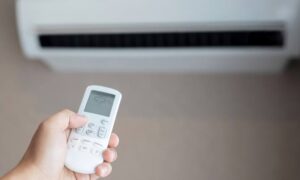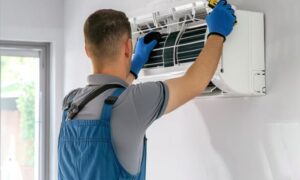Air conditioning has become a vital part of daily life in both homes and workplaces. Whether it’s the height of summer or a humid day when comfort seems impossible, a reliable air conditioning system ensures that the indoor environment remains cool, clean, and breathable. However, like all mechanical systems, even the most dependable air conditioners eventually experience problems that require attention. When that happens, professional air conditioning repair becomes essential to restore comfort, prevent further damage, and maintain efficiency.
This comprehensive guide explains everything you need to know about repairing and maintaining your air conditioner, including common issues, warning signs, maintenance strategies, and modern innovations that help prevent future problems. By understanding how your system works and what it needs to stay efficient, you can save time, money, and frustration while keeping your living or working space comfortable all year round.
Understanding How an Air Conditioning System Works
To properly care for an air conditioner, it’s helpful to know how it operates. Air conditioning systems are based on a simple scientific principle: heat transfer. The system removes heat from indoor air and releases it outdoors through a continuous cycle of evaporation and condensation.
The core components that make this possible include the compressor, condenser coil, evaporator coil, expansion valve, and blower fan. The compressor pressurizes the refrigerant gas and sends it to the condenser coil, where the heat is released outside. The cooled refrigerant then flows through the expansion valve into the evaporator coil, where it absorbs heat from indoor air. The blower fan circulates this now cooled air throughout the building.
This process repeats continuously as long as the system runs. However, when dirt, debris, or wear and tear interfere with these components, the cycle becomes inefficient and can eventually stop altogether. That’s when air conditioning repair may be required to restore normal operation and prevent further damage.
Common Air Conditioning Problems
Every air conditioner experiences wear over time, and certain issues tend to occur more frequently than others. Recognizing these problems early allows you to take quick action before they escalate.
- Dirty or Clogged Filters
Air filters are responsible for trapping dust, pollen, and debris to ensure clean airflow. When filters become clogged, airflow is restricted, causing the system to work harder and reducing efficiency. This can lead to overheating and even compressor failure if ignored. - Refrigerant Leaks
Refrigerant is the fluid that allows heat exchange to occur. A leak reduces cooling power, increases energy consumption, and can damage the compressor. Detecting and repairing leaks promptly is critical for both system performance and environmental safety. - Faulty Thermostat
If your thermostat is inaccurate or malfunctioning, it can cause the system to cycle on and off too frequently or not at all, leading to inconsistent temperatures and wasted energy. - Electrical Issues
Faulty wiring, worn contactors, and broken capacitors are common electrical problems that prevent an air conditioner from turning on or cause it to shut down unexpectedly. - Frozen Evaporator Coil
When airflow is blocked or refrigerant is low, the evaporator coil can freeze over. This prevents the system from absorbing heat and may cause water leakage once the ice melts. - Blocked Condenser Coils
The outdoor condenser unit must release heat effectively. Dirt, leaves, or debris that block airflow cause the system to overheat and reduce its ability to cool efficiently. - Mechanical Wear and Tear
Over time, fan motors, belts, and bearings naturally wear down. These mechanical components require regular inspection and lubrication to prevent complete failure.
Signs That Indicate Your System Needs Repair
Many homeowners overlook subtle warning signs that their air conditioner is struggling. Paying attention to these indicators can help you schedule repairs before the system stops working completely.
One of the most obvious signs is reduced cooling performance. If the air coming from the vents is not as cold as it used to be, the refrigerant level may be low or the compressor could be failing.
Another common sign is weak airflow, which often points to clogged filters, duct blockages, or issues with the blower motor.
Unusual noises such as grinding, banging, or hissing indicate mechanical problems that require immediate inspection.Strange odors coming from vents can suggest mold growth, burnt wiring, or refrigerant leaks.
If your energy bills suddenly increase without a change in usage, the system is likely running inefficiently due to worn parts or buildup on coils. Finally, frequent on-off cycling or inconsistent temperatures across rooms can indicate electrical or thermostat issues that require professional attention.
Why Professional Repair Is Essential
While some maintenance tasks can be performed at home, professional repair ensures that your system is correctly diagnosed and safely restored to full function.
Air conditioning units are complex machines that involve electrical systems, refrigerant handling, and mechanical components. Attempting to fix them without proper tools and knowledge can cause more harm than good. A trained technician uses specialized diagnostic equipment to identify the exact source of the problem and perform precise repairs.
Professionals also ensure that repairs comply with safety and environmental standards, particularly when dealing with refrigerants. Their expertise prevents minor issues from escalating into expensive replacements and helps maintain your system’s warranty coverage.
Environmental and Energy Efficiency Considerations
As energy costs rise and environmental awareness grows, maintaining an efficient air conditioning system has become more important than ever. A poorly maintained or outdated system consumes more electricity and releases greater greenhouse emissions.
By keeping coils clean, ensuring proper refrigerant levels, and maintaining good airflow, you not only reduce energy waste but also contribute to sustainability. Many homeowners choose to schedule professional services through Air Conditioning Repair experts who can fine-tune performance, detect inefficiencies, and recommend upgrades that meet modern environmental standards. Many utility companies also offer rebates and incentives for upgrading to high-efficiency systems, making it easier to adopt eco-friendly cooling solutions.
Preventive Maintenance Tips for Homeowners
Proper maintenance helps avoid the need for frequent repairs and ensures reliable performance year after year. Homeowners can take several simple steps to keep their systems running efficiently.
Replace or clean air filters regularly to maintain strong airflow and prevent dirt buildup. Keep the area around the outdoor condenser unit clear of debris and vegetation to promote effective heat exchange. Check that vents and registers inside the home are open and unobstructed.
Inspect thermostat settings to ensure the system operates at an optimal temperature range, and avoid setting it unnecessarily low, which can strain the compressor.Cleaning the condensate drain line once or twice a year helps prevent blockages and mold growth.
While these basic steps are easy to perform, they go a long way toward maintaining consistent comfort and reducing repair frequency.
Professional Maintenance and Tune Ups
In addition to homeowner maintenance, professional service plays a crucial role in keeping your air conditioner in top condition. Most experts recommend a full system inspection at least once a year preferably before the cooling season begins.
During a tune up, technicians clean coils, check refrigerant levels, lubricate moving parts, tighten electrical connections, and test system controls. They also inspect for potential issues such as refrigerant leaks, worn belts, or failing capacitors.
This proactive approach prevents minor issues from developing into serious problems and ensures that your unit performs at peak efficiency.Regular maintenance not only reduces the likelihood of breakdowns but also keeps your system’s warranty valid and extends its operational life.
The Role of Technology in Modern Air Conditioning Systems
Technology continues to reshape the HVAC industry, introducing smart innovations that make air conditioning systems more efficient, reliable, and user friendly.
Modern units now feature inverter technology, which allows compressors to adjust speed according to cooling demand rather than running at a fixed rate. This results in smoother temperature control, lower energy usage, and quieter operation.
Smart thermostats and Wi-Fi connectivity have also revolutionized system management. Homeowners can now control temperature, monitor energy usage, and schedule cooling cycles remotely using smartphones or voice assistants. These intelligent systems learn your preferences and adjust operation automatically for maximum comfort and efficiency.
Additionally, predictive diagnostics in newer systems can detect performance issues before they become visible, sending maintenance alerts to both the homeowner and technician. This proactive technology helps prevent breakdowns and ensures consistent performance throughout the year.
When Repair Is No Longer Enough
Although repairs can solve many problems, every air conditioner eventually reaches the end of its service life. If your system is over ten to fifteen years old, requires frequent repairs, or fails to cool effectively, replacement may be the more practical option.
Modern air conditioners are designed for higher efficiency and use environmentally friendly refrigerants. Upgrading can significantly lower your utility bills and provide better air quality, quieter operation, and advanced comfort control.
A professional technician can assess whether your current system can be repaired economically or if investing in a new unit will offer better long term value.
Environmental and Energy Efficiency Considerations
As energy costs rise and environmental awareness grows, maintaining an efficient air conditioning system has become more important than ever. A poorly maintained or outdated system consumes more electricity and releases greater greenhouse emissions.
By keeping coils clean, ensuring proper refrigerant levels, and maintaining good airflow, you not only reduce energy waste but also contribute to sustainability. Many utility companies offer rebates and incentives for upgrading to high-efficiency systems, making it easier to adopt eco friendly cooling solutions.
Conclusion
A reliable air conditioning system is essential for maintaining comfort, health, and productivity in any environment. Understanding how it works, recognizing early warning signs, and addressing issues promptly can prevent breakdowns and save money over time.
When problems do arise, professional air conditioning repair ensures that your system is restored safely and efficiently, preserving comfort and reducing energy costs. With proper maintenance and modern technology, your cooling system can deliver dependable performance, cleaner air, and peace of mind for many years.
Being proactive about repair and upkeep not only protects your investment but also keeps your indoor environment consistently comfortable no matter how high the temperature rises outside.



































